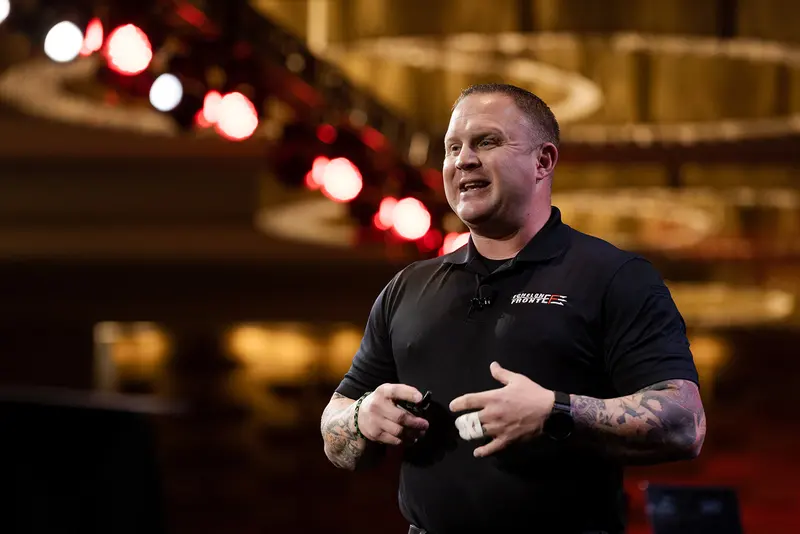Finding out where the misalignments are in your team.
How often is acceptable to push back on ideas you don’t quite agree with up the chain.
How to effectively communicate to the team WHY they are doing what they are doing to accomplish the big picture goals.
Effectively communicate up the chain and down the chain.
Jocko and Good Deal Dave Analyze some issues and look for solutions.
You have to get use to delegating. Having trouble letting go of tasks.
Winning an argument about who’s plan is better does not guarantee the best plan to be implemented.
Taking on a new leadership role. Trying to get the new team “on track” when they’re working on the “wrong stuff”.
How to align two different departments.
How You See People Outside Of Work Affects How You Work With Them At Work.
When it comes to taking ownership, perhaps the most frequently asked question we get at Echelon Front is: How do I get others to take ownership?
What is the ultimate dichotomy of leadership? Leif Babin answers that question and explores the Battle of Long Island during the American Revolution.August 27th, 1776, the Battle of Long Island, or the Battle of Brooklyn. This was the largest battle of the American Revolution and it was a total victory
How do I deal with a micromanaging boss? If you’ve ever asked this question, you need to read this. Click here to learn how to to deal with a micromanaging boss.
Putting the mission first is simple. Check your ego. You may find yourself in a situation where all of your efforts are in support of another department, team, or person. Since you are supporting them, that means they will get the bulk of the credit for any successes they experience. You may find yourself resentful in some respect—after all, were it not for your hard work, they would likely not have achieved the success for which they are now getting the credit.
I wore a gold shirt to my first Echelon Front event. Think about that for a second. The first time I worked with Jocko Willink and Leif Babin at an Echelon Front training event with a client, I was dressed in a bright gold polo shirt.
Standard Operating Procedures (SOPs) have been developed in the military so that commonly performed tasks can be completed in the safest and most efficient manner possible. The military has also developed SOPs to deal with contingencies. When a contingency occurs, training takes over and team members are able to perform under high stress situations like a firefight.
The best way to introduce, develop, and maintain a culture of Extreme Ownership with your team is to model it. When your new recruits first arrive to work, they will see right away how you lead, and over time they will embrace it.
The first Law of Combat is Cover and Move. At its core, Cover and Move means teamwork. Individuals and teams must mutually support one another, working together in order to accomplish the mission. But how do you get individuals and teams to most effectively work together? The answer, that I’ve seen tested and proven in combat, business or in any other arena in life, is to build relationships.
Belief is one of the most important factors in determining the success of a team. As Jocko wrote about in Extreme Ownership, if the team believes in the mission, they will do whatever it takes to accomplish the goal. But if the team doesn’t believe in the mission, it’s unlikely they will persevere through challenges or do the hard work necessary to achieve mission success. But getting a team on board isn’t as easy as telling them about the mission. Spreading belief, like many other facets of leadership, requires balance. It’s another of the infinite dichotomies in the Dichotomy of Leadership.
It’s human nature to get comfortable with success. Victory breeds confidence. Successive victories multiply that confidence which can lead to complacency. When leaders and teams get complacent, they fail to thoroughly plan for contingencies since the potential for challenges and obstacles seems far-fetched. However, this mindset sets the team up for disaster.
A good leader needs to have a strong relationship with everyone on his or her team. The more you know about them and the more connected you are, the more effective you become. So on the one hand, you need to be close with your subordinates…but not too close.
While powerful, communicating in written word can be dangerous when the reader receives a different emotion than the writer intended. The dynamic of the correspondents’ relationship at the time and the current work situation are factors that can cause a difference in the perception of the message.




















